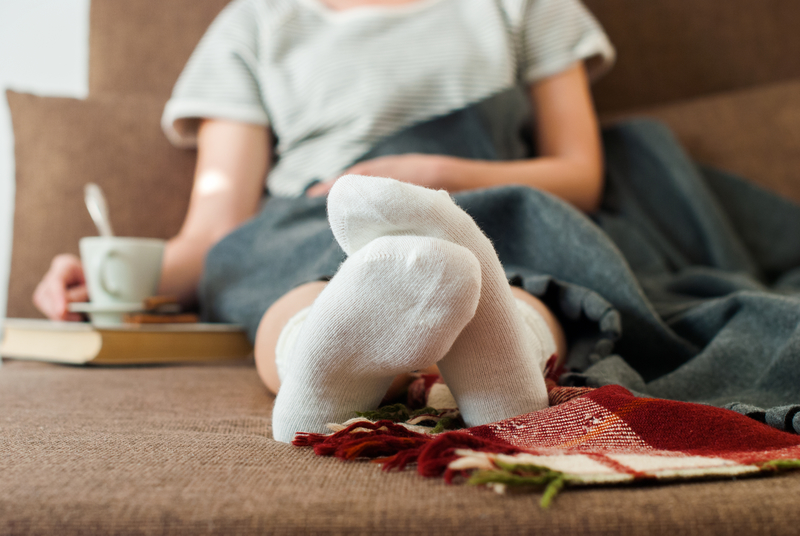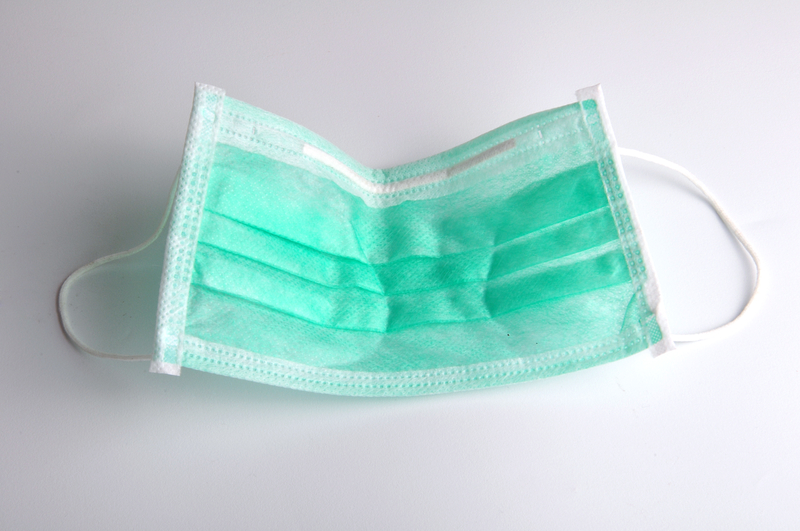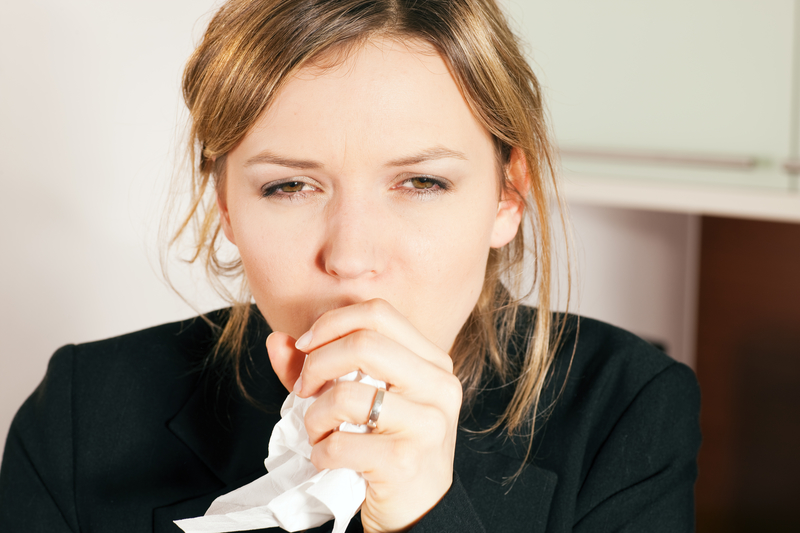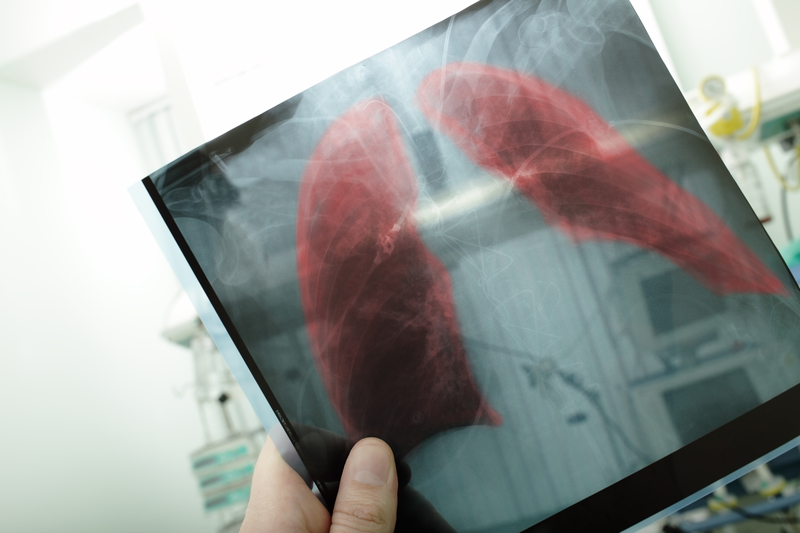10 Life Saving Tips If You Contract Pneumonia
Pneumonia is an infection in the lungs which has a number of different causes and symptoms. It can lead to complications and severe illness. Those at high risk are people with underlying diseases like asthma, heart disease, cancer, or diabetes. People who are generally healthy can come down with pneumonia by breathing in germs and are even more susceptible if they have a cold or the flu at the same time. Care is undertaken at home or in the hospital depending on the severity.
Avoid Reinfection

Maintaining general health and wellness is important to avoid any further illness, especially colds and flu. It is vital to follow a healthy and nutritious diet full of fruits and vegetables, grains and legumes, and lean protein to booth the immune system. Professionals also recommend losing weight if necessary, participating in regular aerobic exercise and a strength training regime, getting enough rest, practicing proper hygiene and hand-washing, avoiding drugs and alcohol, and quitting smoking.
Monitor Symptoms

When resting at home, be aware of any additional symptoms. Experiencing any of the following require a trip to the doctor or the emergency room: A fever of 104 degrees F or higher, labored breathing, a pulse rate higher than normal or more than 125 beats per minute, low blood pressure or a rapid decline in blood pressure, dizziness, bluish tone to the skin. These symptoms can signal a serious infection and need medical attention.
Surgery

Surgery is required for patients with pneumonia if a build up of fluid occurs in the pleural spaceor the area between the lungs and chest wall. When this happens, it makes breathing more difficult and the procedure, a thoracentesis, will be done to drain the fluid. The doctor will numb the area and insert a needle into the chest below the ribs to reach the pleural space. The normal fluid amount in the space is about four teaspoons, so all excess will be removed.
Quicken Recovery Time

No one wants to prolong an illness like pneumonia, and doing whatever is necessary to speed up recovery is important while in the middle of the infection. Bed rest is crucial to allow the body to rest and heal from the inside. Maintaining hydration by drinking enough water, broth, and other healthy fluids keep the system flowing and thins mucus. Thick secretions of lung fluid build-up can be reduced with a steam inhalation, and chest discomfort is relieved with a heating pad.
Avoid Irritants

Tiny foreign particles can be easily trapped in mucus and fluid-filled lungs, so it is important to avoid breathing in polluted air. If it is necessary to go outside, a face mask will help prevent the inhalation of smoke, dust, and other pollutants. Indoor air can be kept free of dust mites and chemicals with a dehumidifier, a doormat inside and outside the door, keeping the floor clean, and adding certain plants to the rooms.
Home Treatment

Coughing is the body’s means of eliminating mucus and other foreign bodies from the lungs, so it is recommended to gently take care of it, rather than suppress it unless it is causing vomiting or increased difficulty breathing. Coughing can be eased by drinking fluids. Water is best, but hot tea or lemon and honey in hot water are soothing, and the warmth can loosen build-up. Raising the head on a pillow at night is helpful for a dry cough, as are the common cough drops.
Culture And Sensitivity Test

If antibiotics do not help or if improvement is not noticed over time, a patient may be required to have a culture and sensitivity test. A culture test determines the germs and identifies the specific bacteria, and a sensitivity test allows a doctor to prescribe a targeted antibiotic. Various body fluids, such as blood, urine, mucus, saliva, and pus are used for the tests. Usually, only those patients requiring hospital stays for their pneumonia require this type of testing.
Antibiotics

The most commonly prescribed treatment for pneumonia is a full complete dose of antibiotics. Typically, patients begin to feel better after about two or three days of proper administration. Antibiotics are likely to cure the illness for most people, but the type prescribed and the length of time required to be taken are dependent on a patient’s age, symptoms, the severity of the infection, and whether treatment and recovery take place at home or in the hospital.
Symptoms of Pneumonia

Symptoms associated with pneumonia are numerous and varied. Usually associated with a current upper respiratory infection, they can include persistent wet coughing which produces mucus, a fever alternating with the chills, difficulty breathing or a shortness of breath, pain in the chest, rapid heartbeat, fatigue, nausea and vomiting, and diarrhea. A cough in older adults may not be combined with mucus, and a fever may not be present, but they could experience confusion.
Cause Of Pneumonia

Several things, including viruses, bacteria, fungi, and parasites can cause pneumonia. A diagnosis is difficult because unless the specific cause is identified as the bacteria, Streptococcus pneumonia, most times a specific organism will not be identified. The general flu virus, influenza, can cause pneumonia, as can Mycoplasma pneumonia, and a fungus called Pneumocystis jiroveci, often discovered in people who are infected with the AIDS virus.
